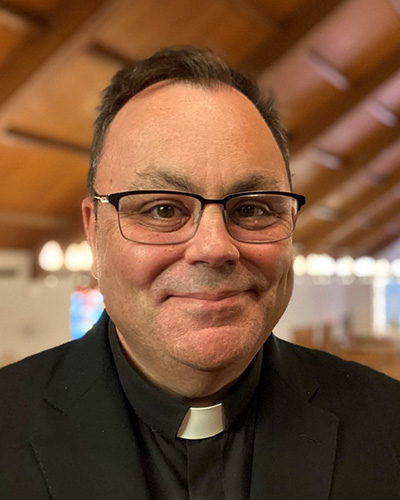If anyone wishes to be first, he shall be the last of all and the servant of all.
Who doesn’t like to be first? Who among us does not want to be a winner in all things of life? These are the questions that would be asked of Jesus in our modern-day culture and, most assuredly, went through the minds of his apostles. Why wouldn’t he want success? What’s wrong with being the best? The answer is that success for Jesus, the servant leader, is achieved through sacrificial love (i.e. the cross.) Servant leadership is what brings about the victory of the resurrection, in that Jesus is faithful to the Father by being one who serves the least among us. He does so by not excluding but including the Gentile and the Jew, the rich and the poor, the healthy and the sick, the virtuous and the sinner, in his preaching and healing.
This perspective will help us to understand two more themes in Catholic Social Teaching which we are reflecting on as we form our consciences in anticipation of a national election.This week I offer the themes of Solidarity and The Call to Family, Community, and Participation.
The principle of Solidarity reminds us that we are one human family, whatever our national, racial, ethnic, economic, and ideological differences. We are our brothers’ and sisters’ keepers, whomever they may be. Loving our neighbor has global dimensions in a shrinking world. At the core of the virtue of solidarity is the pursuit of justice and peace. In his 1971 message for the new year, Pope Paul VI taught us that if we want peace, we must work for justice. The Gospel calls us to be peacemakers. Our love for all our sisters and brothers demands that we promote peace in a world surrounded by violence and conflict. Although we may not feel that we have much power in quelling violence at home or abroad, we must be concerned about whatever disrupts peace. We cannot be isolationists that simply dismiss global conflict as “none of our business.” Nor can we remove ourselves from hardships faced in neighboring communities. Such a perspective does not mean that we are bound to support a particular foreign or domestic policy. Rather we are bound to be educated about the happenings in our world and communities. We are called to be advocates for justice and peace without having to take a political side.
The Call to Family, Community, and Participation is a teaching that recognizes that the person is not only sacred but also social. How we organize our society — in economics and politics, in law and policy — directly affects human dignity and the capacity of individuals to grow in the community. Marriage and the family are the central social institutions that must be supported and strengthened, not undermined. We believe people have a right and a duty to participate in society, seeking together the common good and well-being of all, especially the poor and vulnerable. In other words, we are duty bound by our faith and enlivened by our Heavenly Father to organize ourselves as family and community for the purposes of serving one another. Here we enact and live the principle of subsidiarity, which simply means that the challenges of life are best met by those who are the closest to them. By strengthening families, religious congregations, and community groups, formal government allows for the best of solutions. In their document, Economic Justice for All the United States Bishops state:
Government should not replace or destroy smaller communities and individual initiative. Rather it should help them contribute more effectively to social well-being and supplement their activity when the demands of justice exceed their capacities. This does not mean, however, that the government that governs least, governs best. Rather it defines good government intervention as that which truly “helps” other social groups contribute to the common good by directing, urging, restraining, and regulating economic activity as “the occasion requires, and necessity demands.” (#124)
In summary, the church teaches that we are called to be in solidarity with each other through empathy and action. As we prepare to make electoral choices, we are called to examine our consciences as well as the pledged intentions of potential leaders regarding solidarity and the building up of community and family as the means to cultivate justice.
CHURCH DOOR UPDATE – Progress continues to be made. Our Operations Manager, Joe Quinto, made a visit to the manufacturer last week and personally observed the production of the doors and their windows. We are hopeful that the doors will be installed by the middle of next month. Thank you for your patience and the generosity that has allowed us to take on this project.
Peace,

